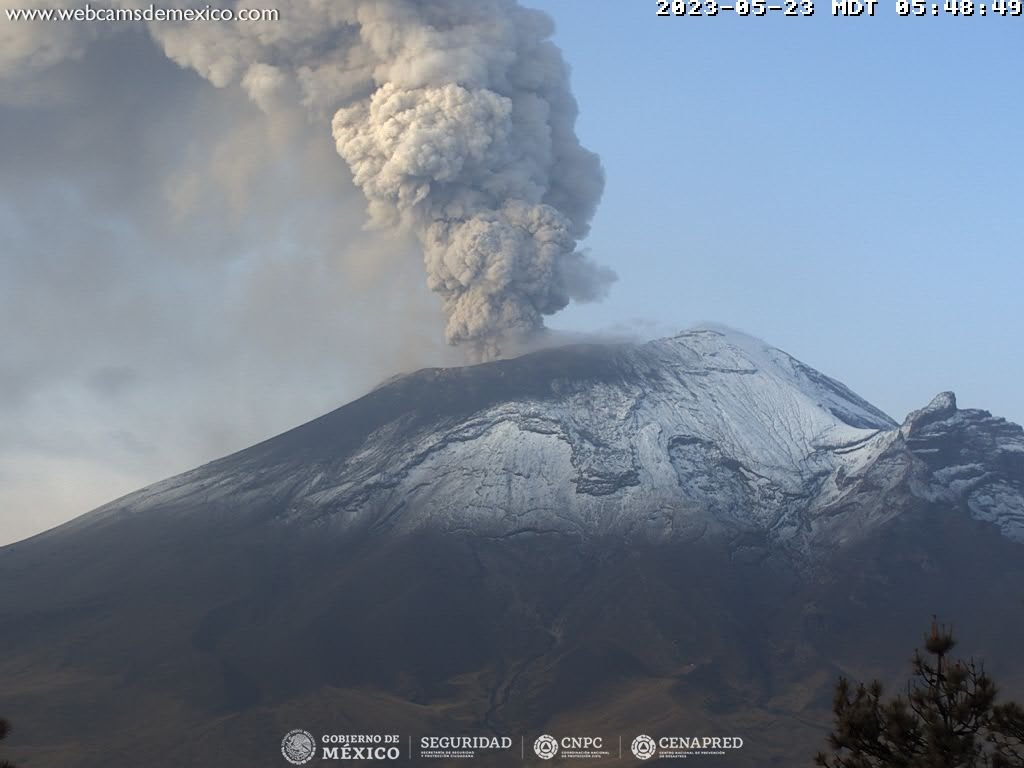The Impact of the Recently Erupted Popocatépetl Volcano on Respiratory Health
The Popocatépetl volcano, located in Mexico, has recently experienced a series of eruptions that have raised concerns among the population, particularly for those who suffer from respiratory issues such as asthma and chronic obstructive pulmonary disease (COPD). In this blog post, we will explore how volcanic activity can affect individuals with these conditions and discuss measures they can take to safeguard their health during this period.
Photo credit Government of Mexico
Asthma is a chronic respiratory condition characterized by narrowed airways, leading to symptoms such as difficulty breathing, chest tightness, coughing, and wheezing. The volcanic ash and gases emitted during Popocatépetl's eruptions can trigger or worsen asthma symptoms in individuals with the condition. The fine particles present in volcanic ash can irritate the airways, causing an inflammatory response and making breathing more challenging.
Similarly, COPD is a chronic lung disease that obstructs airflow, resulting in breathing difficulties. People with COPD are particularly vulnerable to the effects of exposure to volcanic ash and gases. Inhaling these substances can trigger exacerbations of COPD symptoms, including persistent coughing, increased mucus production, shortness of breath, and chest tightness.
It is essential for individuals with respiratory issues to be aware of the risks associated with the activity of the Popocatépetl volcano and to take necessary precautions to protect their health. Here are some recommendations to consider:
Stay informed: Stay updated on reports and advisories from local authorities and volcanic experts. Being aware of the volcanic activity will enable you to make informed decisions regarding your health and well-being.
Minimize exposure: During volcanic eruptions, it is crucial to reduce exposure to volcanic particles and gases. Stay indoors as much as possible and keep windows closed to prevent particles from entering your home. Use air purifiers with high-efficiency filters to improve indoor air quality.
Use quality masks: If you must venture outdoors during volcanic activity, wear masks specifically designed to filter fine particles, such as N95 masks. These masks provide added protection against inhalation of volcanic particles.
Follow your treatment plan: If you have asthma or COPD, it is vital to adhere to your treatment plan and take your prescribed medications as directed by your healthcare provider. Ensure you carry your rescue inhaler with you at all times.
Seek medical attention if needed: If you experience severe respiratory symptoms or exacerbations of your respiratory conditions, seek medical attention promptly. Your healthcare provider can provide appropriate guidance and adjustments to your treatment plan.
Remember, taking proactive measures to protect your respiratory health during volcanic activity is crucial for individuals with asthma and COPD. By staying informed and following these recommendations, you can minimize the potential impact of the Popocatépetl volcano on your well-being.

